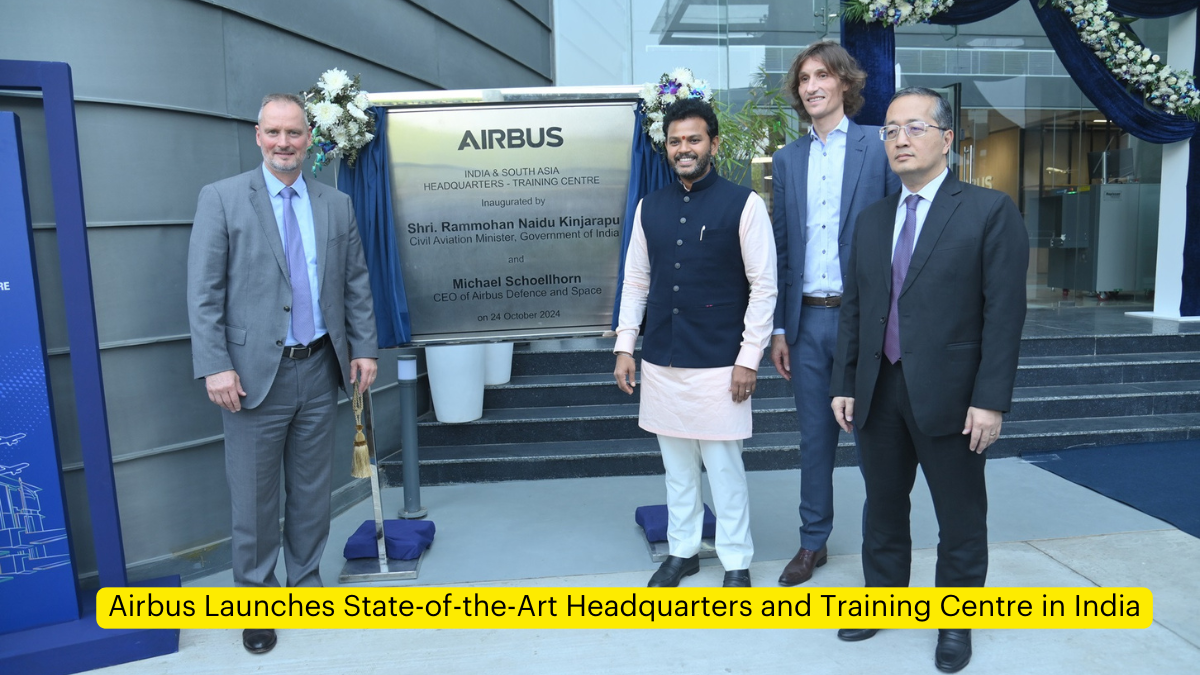Airbus has inaugurated its new India and South Asia Headquarters and Training Centre, marking a significant investment in the Indian aerospace sector. Located in the National Capital Region (NCR), this facility is poised to play a key role in training pilots and technicians and expanding Airbus’s industrial footprint in India. The centre is equipped with four A320 simulators and boasts a capacity to train up to 800 pilots and 200 technicians annually.
At the inauguration event, Michael Schoellhorn, CEO of Airbus Defence and Space, emphasized the company’s commitment to fostering India’s aerospace ecosystem. He noted that the facility will be “the heart of Airbus’ industrial mission in India,” aiming to stimulate growth in the aerospace industry, create skilled jobs, and drive exports.
Airbus’s Expanding Operations in India
Airbus’s footprint in India has grown considerably in recent years. Mr. Schoellhorn shared several impressive statistics illustrating this expansion:
- Procurement from India has doubled, now exceeding €1 billion.
- Employee count in India has risen to 3,500.
- The establishment of two final assembly lines: one for the C295 military transport aircraft and another for the H125 helicopter.
In addition, Airbus is collaborating with Air India to establish a second pilot training facility in the NCR, which will include 10 simulators for A320 and A350 aircraft. Airbus’s ambitious plans also include the development of a 5,000-seater Airbus Campus in Bengaluru to support its expanding workforce.
Minister of Civil Aviation Highlights India’s Aviation Growth
Minister for Civil Aviation, Ram Mohan Naidu, who presided over the inauguration, highlighted India’s aggressive plans for the aviation sector. He noted the urgent need to “pursue the dream of ‘train in India’” as the country prepares to add 4,000 new aircraft to its commercial fleet over the next 20 years. This represents a five-fold increase from the current fleet of 800 aircraft.
Mr. Naidu further emphasized India’s infrastructural expansion in aviation:
- 50 new airports are expected within the next five years.
- Over 400 airports are anticipated within the next 20-25 years.
Boosting Pilot Training Capacity in India
Addressing India’s current pilot training capabilities, Mr. Naidu explained that the country has made considerable progress over recent years:
- Eight new Flying Training Organizations (FTOs) have been added in the past three to four years, with 10 more in the pipeline.
- Training aircraft numbers have risen from 190 in 2020 to 264 in 2024.
- The issuance of commercial pilot licenses has more than doubled, rising from 744 in 2019 to 1,600 in 2023.
The Minister attributed this growth to several governmental measures, including:
- Abolition of airport royalties
- Rationalization of land rentals for FTOs
These reforms have enabled more affordable pilot training options, contributing to a steady increase in the number of pilots trained domestically.
Government’s Vision for Aviation: Cost Reduction and Enhanced Training
To further support the industry, the Indian government is exploring ways to reduce fuel costs and other expenses associated with pilot training. This move is intended to alleviate financial burdens on FTOs and enhance their capacity to meet the growing demand for pilots in India.
According to Mr. Naidu, these measures are essential in achieving the government’s vision of transforming India into a global hub for pilot training. As Airbus’s new training centre becomes operational, it will play a pivotal role in supplying skilled aviation professionals, not only to meet India’s needs but also for international markets.
Airbus’s Vision for India: Growth, Innovation, and Job Creation
For Airbus, the new headquarters and training centre represent more than just a facility; they signify a long-term commitment to India’s growth in the aerospace sector. By focusing on innovation, skill development, and high-tech manufacturing, Airbus aims to strengthen India’s standing as a critical player in the global aerospace industry.
Schoellhorn highlighted that the headquarters will act as a catalyst for India’s aerospace ecosystem, leveraging the country’s technological talent and fostering partnerships that will benefit both India and the global aerospace market.




 2026 Business Milestone: Amazon Dethrone...
2026 Business Milestone: Amazon Dethrone...
 V.O. Chidambaranar Port Authority Secure...
V.O. Chidambaranar Port Authority Secure...
 Reliance Industries Limited Secures U.S....
Reliance Industries Limited Secures U.S....








